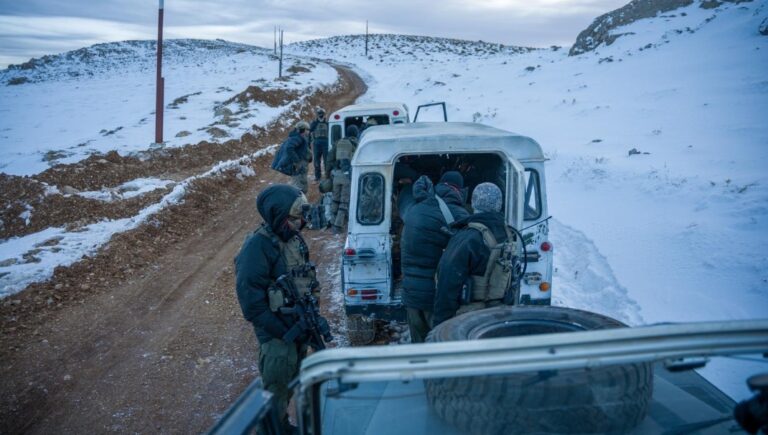Israeli Prime Minister Benjamin Netanyahu has ordered troops to occupy the Syrian side of the buffer zone on the Golan Heights, marking the first time in fifty years that Israeli forces have taken control of this area. Netanyahu cited attacks on United Nations posts and the ouster of Syrian dictator Bashar Assad as reasons for the incursion, stating that the 50-year-old agreement maintaining peace in the region following the 1973 Yom Kippur War is no longer viable.
The Israeli army clarified that the move is temporary and not intended to influence the outcome of the rebellion against Assad’s regime. The rebellion, led by the Islamist Hayat Tahrir al-Sham movement, has swiftly gained control over several cities, including Damascus, in recent weeks.
In a statement, the army emphasized that their actions are solely aimed at safeguarding the Golan Heights communities and Israeli citizens, without interfering in Syria’s internal affairs. Israeli combat aircraft reportedly targeted sites in Damascus and other locations in Syria to prevent insurgents from obtaining lethal weapons, including chemical weapons facilities.
Israel captured the Golan Heights from Syria during the 1967 Six Day War and annexed the territory in 1981, with only the United States recognizing Israeli sovereignty in the region. The recent incursion by Israeli troops into the buffer zone has been described as a defensive measure to prevent hostile forces from approaching Israel’s border.
Israeli troops are actively engaged in securing the buffer zone and have established new barriers on the Syrian side of the border. The incursion follows an attack on a U.N. outpost monitoring the ceasefire agreement established in 1974 after the Yom Kippur War.
Netanyahu framed the incursion as a response to the collapse of the longstanding agreement with Syria and the need to prevent hostile forces from encroaching on Israel’s border. The Israeli military chief of staff, Lt. Gen. Herzi Halevi, highlighted the multi-front conflict Israel is facing, including combat against terrorism in Judea and Samaria, Gaza, Lebanon, and now in Syrian territory.
While Israel’s actions have drawn criticism from some countries, including Egypt, for attempting to alter the situation on the ground, Netanyahu and other leaders have emphasized the need to protect Israeli interests and ensure the safety of the country’s citizens.
Support the Jewish Telegraphic Agency
Help ensure Jewish news remains accessible to all. Your donation to the Jewish Telegraphic Agency powers the trusted journalism that has connected Jewish communities worldwide for more than 100 years. With your help, JTA can continue to deliver vital news and insights. Donate today.

